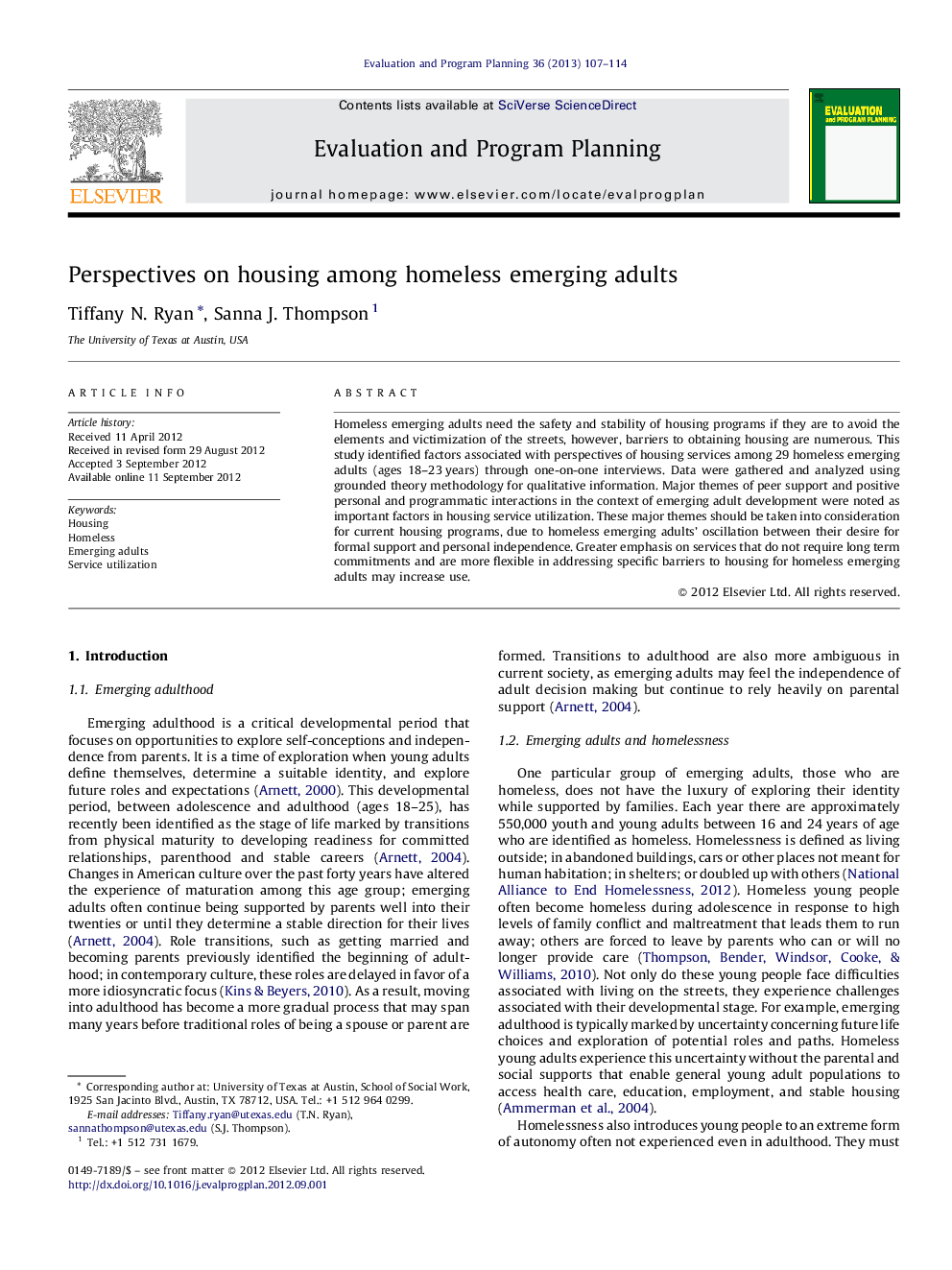| Article ID | Journal | Published Year | Pages | File Type |
|---|---|---|---|---|
| 319444 | Evaluation and Program Planning | 2013 | 8 Pages |
Homeless emerging adults need the safety and stability of housing programs if they are to avoid the elements and victimization of the streets, however, barriers to obtaining housing are numerous. This study identified factors associated with perspectives of housing services among 29 homeless emerging adults (ages 18–23 years) through one-on-one interviews. Data were gathered and analyzed using grounded theory methodology for qualitative information. Major themes of peer support and positive personal and programmatic interactions in the context of emerging adult development were noted as important factors in housing service utilization. These major themes should be taken into consideration for current housing programs, due to homeless emerging adults’ oscillation between their desire for formal support and personal independence. Greater emphasis on services that do not require long term commitments and are more flexible in addressing specific barriers to housing for homeless emerging adults may increase use.
► Homeless youth oscillate between desire for formal support and independence. ► Services that do not require commitments and are more flexible may increase use. ► Emerging adulthood development plays a critical role in service utilization. ► Regulations of housing services decreased youths’ desire to seek services. ► Themes: positive relationships with staff, peer support, and remaining independent.
